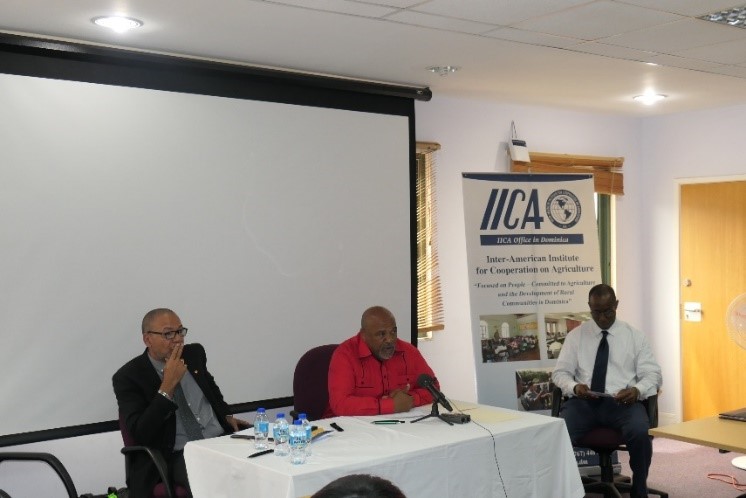IICA’s actions in 2018 enabled producers in Dominica to resume their activities and increase their climate resilience.

Roseau, Dominica, 3 May 2019 (IICA). With the aim of rehabilitating Dominica’s agriculture sector in the aftermath of extreme climate events, the cooperation efforts undertaken last year by the Inter-American Institute for Cooperation on Agriculture (IICA) in the country focused on projects that would enable producers to begin generating new income and, in turn, strengthen national food security.
In an effort to reactivate the agricultural economy and minimize the impact of future extreme events across the entire Caribbean region, IICA invested resources and took full advantage of its technical capacity in those countries last year.
John King, IICA Representative in the Eastern Caribbean States (ECS), acknowledged the efforts undertaken to drive the recovery, rehabilitation and strengthening of the agriculture sector following the devastation caused by hurricane Maria.
Reginald Austrie, Minister of Agriculture of Dominica, acknowledged the role played by IICA in this process and highlighted the creation of the Global Center for Resilient Agriculture as the most significant investment.
The center is a mechanism that will enable the national and regional public and private sectors to validate guides, conduct research, support technology transfer to improve recovery capabilities, and access the best sanitary, phytosanitary and agricultural production practices that the Institute has identified in the hemisphere.
Farmers, processors, exporters, technical specialists and public officers attended workshops to broaden and strengthen their knowledge of matters related to sustainable production, family farming, composting, risk analysis, strategic planning and agribusiness, among other areas.
More information:
John King, IICA Representative in the ECS.











